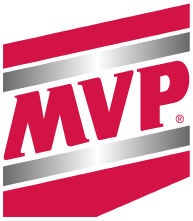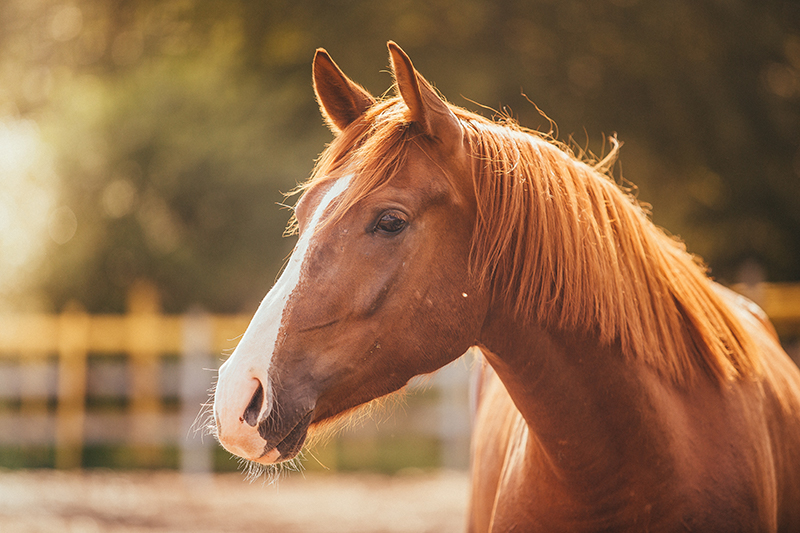A stomach ulcer (or gastric ulcer) is an open sore in the stomach lining. It's a common cause of focal stomach pain with a burning or gnawing quality. However, not all stomach ulcers cause noticeable symptoms. In Equines, the term Equine Gastric Ulcer Syndrome (EGUS) describes erosions, ulcerations, and lesions in the terminal esophagus, non-glandular and glandular regions of the stomach, and proximal duodenum.
All Horses are at risk; however, performance horses are at the most significant risk of developing gastric ulcer syndrome. Understanding the causes, symptoms, prevention strategies, and treatments is essential for maintaining your horse's health.
Common Causes of Gastric Ulcers in Horses
Horses are susceptible to gastric ulcers due to several risk factors:
- Diet: High-concentrate (grain) diets and infrequent feeding or long intervals between can lead to poor digestion causing gastric upset.
- Stress: can be result of training, competition, travel, injury, environmental changes and/or infrequent feedings.
- Limited access to forage: The longer a horse’s stomach is empty the more at risk they are for gastric ulcers as there is no forage or saliva product to buffer stomach acid. Horses are grazing animals and can graze upwards of 17+ hours per day, providing a constant stream of saliva to help buffer stomach acid.
- Reduced access to water
- Intense training/competition
- Physiological Factors: Breakdown of mucosal defenses (reduced blood flow, loss of mucus-bicarbonate layer, and inhibition of prostaglandins), bacterial colonization, and inflammation contribute to spontaneous equine gastric ulcer syndrome.
Understanding and mitigating these risk factors can help maintain your horse’s digestive health and prevent the development of gastric ulcers.
Symptoms of Gastric Ulcers in Horses
Gastric ulcers in horses can manifest through various symptoms, which can be vague and nonspecific, especially in adult horses. However, it's important to remember that these conditions are treatable. Recognizing these signs early can help in timely diagnosis and treatment, giving horse owners and veterinarians a sense of hope and confidence in managing these conditions.
Symptoms in Foals
Foals can develop gastric ulcers at a very early age and may show the following symptoms when suffering from gastric ulcers:
- Lethargy
- Colic
- Diarrhea
- Poor or interrupted nursing
- Dorsal recumbency (lying down more than usual)
- Increased salivation
- Frothing or drooling of milk
- Tongue rolling
Symptoms in Adult Horses
Adult horses with Equine Gastric Ulcer Syndrome (EGUS) may exhibit:
- Poor performance
- Abdominal discomfort (colic)
- Poor appetite
- Mild weight loss
- Poor body condition
- Attitude changes
- Cinchy or refusal
Severe abdominal pain (colic) in horses with gastric ulcers is typically not directly caused by the ulcers but may indicate their presence.
Diagnosis of Gastric Ulcers in Horses
Neither clinical signs nor laboratory tests are specific for diagnosing gastric ulcers. Gastroscopic visualization of ulcers on an empty stomach is the only definitive method of diagnosis.
To visualize stomach ulcers, a 3-meter-long equine gastroscope with a high-quality light source is required. During the gastroscopic exam, ulcers are graded on a scale of 0-4 (normal to severe) using an established scoring system.
Treatment and Prevention of Gastric Ulcers in Horses
- GastroGard® (Omeprazole) is the only FDA-approved medication for treating squamous ulcers in horses. It inhibits the proton pump responsible for stomach acid secretion, shutting down acid production allowing the ulcer(s) to heal.
- Keep grain/commercial feeds to a minimum (low starch)
- Feed frequent, small hay meals or if possible a constant intake of forage providing for a constant production of saliva to help naturally buffer stomach acid. Can use hay nets for ‘trickle feeding’ all day long as well.
- Reduce stress
- Limit the use of non-steroidal anti-inflammatory medications (NSAIDS) such as phenylbutazone and Banamine® (flunixin meglumine).
Supplements that may support stomach and digestive health
Supplements designed to support gastric health often include a combination of these key ingredients:
- L-Glutamine to help promote healing
- Licorice and gelatin to help restore and soothe stomach tissue
- Probiotics to help maintain ‘good’ bacteria/normal microflora.
- Active dry yeast to support fiber digestion in the hind gut
For more detailed information and professional advice, visit Med-Vet Pharmaceuticals. Our team of experts is dedicated to providing the best care and supplements to support your horse’s health.

